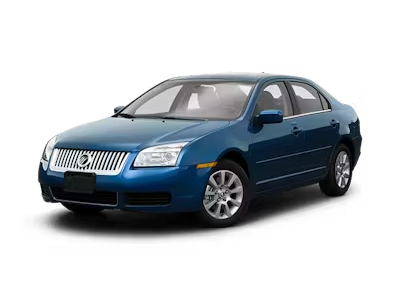
The Mercury Milan's braking system is a conventional disc brake setup, with disc brakes on both the front and rear wheels. Brake pads, made of various materials like ceramic or semi-metallic, are pressed against the rotors (discs) to create friction and slow the vehicle down. The Milan also features an Anti-lock Braking System (ABS) which helps prevent wheel lock-up during hard braking, enhancing steering control and stopping distance.
Dealership $350-$450
Dealership $1480-$1870
The Milan utilizes disc brakes at all four wheels, providing reliable stopping power.
These are the friction material that presses against the rotors. Various materials like ceramic and semi-metallic are available, each offering different characteristics in terms of stopping power, noise, and longevity.
Also known as brake discs, these are the rotating metal surfaces that the brake pads clamp down on to create friction.
This system prevents the wheels from locking up during hard braking, allowing the driver to maintain steering control.
The HCU is a part of the ABS system that modulates brake pressure.
These sensors monitor the speed of each wheel and send this information to the ABS module.
It's recommended to have your brakes inspected regularly by a mechanic, especially once the brake pads reach a certain thickness (around 5mm).
Brake pads should be replaced when they reach a minimum thickness, typically between 3-4mm.
Front brake pads typically wear out faster than rear pads because they handle more weight transfer during braking.
Listen for grinding noises or feel vibrations when braking, which can indicate worn brake pads or rotors.
A common issue with the Milan's braking system involves a faulty valve in the HCU, which can cause the brake pedal to go to the floor and require excessive pressure to stop.
Grinding, squealing, or vibrations during braking can indicate worn or damaged brake components.
Overall, the Mercury Milan's braking system is designed to provide safe and reliable stopping power, but regular maintenance and awareness of potential issues are crucial for optimal performance and safety.
Dealership $730-$920
Dealership $160-$200

32694 Van Dyke at 14 mile

586-239-8800

admin@detroitbrake.com
At Detroit Brake Repair in Warren, we specialize exclusively in brake repair, delivering expertise and exceptional service every time.
586-327-7022
© 2025 Detroit Brake Repair. All Right Reserved.